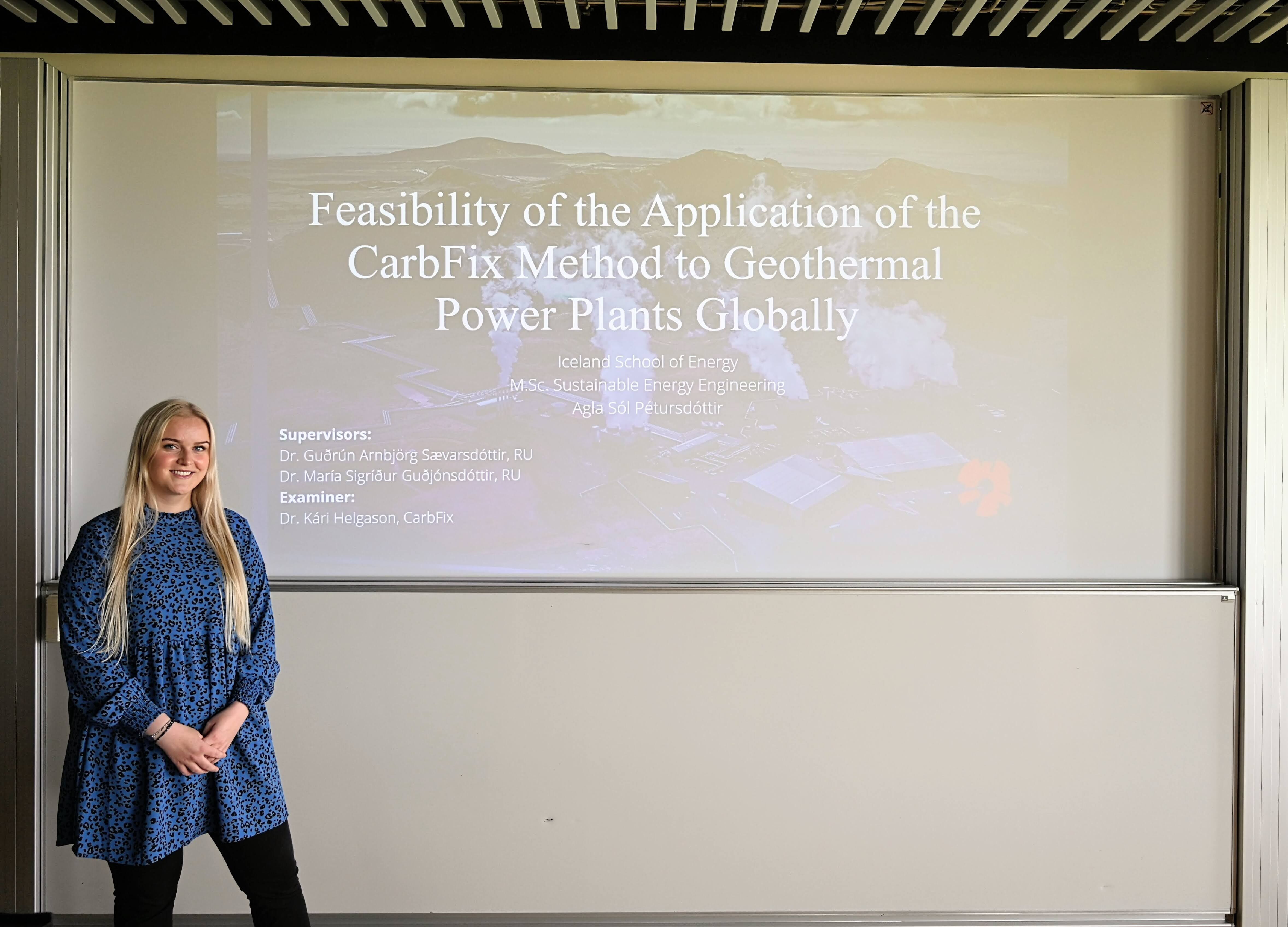MSc Thesis: Feasibility of the Application of the CarbFix Method to Geothermal Power Plants Globally
REYKJAVIK, June 1 - MSc in Sustainable Energy Engineering candidate, Agla Sól Pétursdóttir, successfully defended her master's thesis where she performed a feasibility study of the applicability of the CarbFix method to geothermal power plants globally. Agla's work was supervised by Dr. Guðrún Arnbjörg Sævarsdóttir from Reykjavik University and Dr. María Sigríður Guðjónsdóttir from Reykjavik University.

Agla began by explaining that although geothermal energy is considered to be renewable energy, it still emits some amount of polluting gases to the atmosphere. Her research focused on the CarbFix method, in which carbon dioxide and hydrogen sulfide are injected into the subsurface, where it has the potential of mineralizing within two years.
She explained that the CarbFix has been in operation since 2014 and is located at Hellisheiði, a geothermal power plant in Iceland. The attractiveness of this method is that geothermal power plant emissions to the atmosphere are reduced. Agla's feasibility study maps out to which extent the CarbFix method could be applied to other geothermal power plants in the ten countries with the highest electricity production from geothermal energy.
Agla pointed out an important limitation of the CarbFix method depends on the rock type where the power plants are located, the amount of carbon dioxide emissions from the power plants, and the condenser design for the power plant. To determine potentially feasible locations, she used the CarbFix Mineral Storage Atlas. She also noted that carbon dioxide emissions data for geothermal power plants were very limited, and there was limited availability of information about the detailed design of the condenser in the power plant.
Based on her results, most geothermal power plants were not feasible due to the power plant's location or because of the power plant using a direct contact condenser. There was no feasibility with the current method for the plants in the Philippines, Turkey, or Italy because the power plants were not located in geology with feasible rock types. However, there were geothermal power plants feasible in the United States, Indonesia, Iceland, Kenya, New Zealand, and Japan.
Another important feature of Agla's thesis, despite limitations to the data gathered, is that this study now holds information on the CO2 emissions and condenser design for many geothermal power plants around the world.
Congratulations Agla for an excellent thesis defence!
